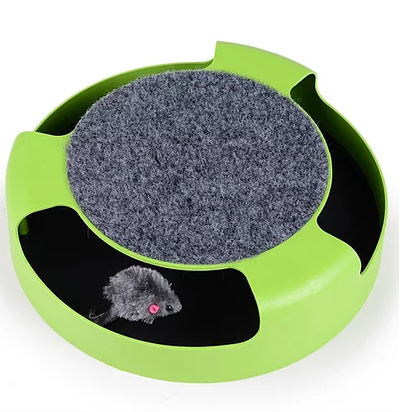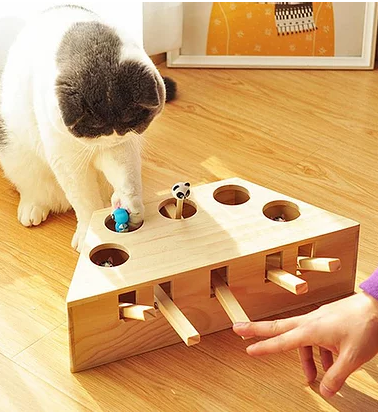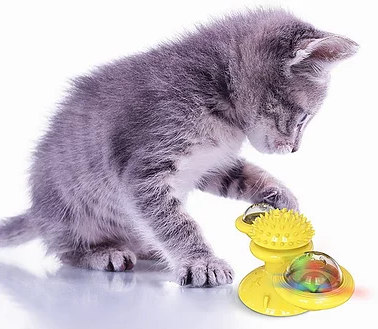
Welcome back furriends! This week has been a very pawsitive one, with the UK beginning to open up once again so we can finally feel like we’re getting back to some kind of normality. Monday saw the return of some of the nation's favourite hobbies including shopping, visiting outdoor attractions and drinking in beer gardens, as well as the return to work for many. But as we’re slowly remembering what life’s like outside of our own four walls, our feline companions will continue to stay at home, the main difference being that they’ll have to get used to being alone once again. Since our cafés have been closed for almost six months now, it’s safe to say we know a little about helping cats to deal with a lack of human interaction. That being said, we thought it would be helpful to dedicate this week’s blog post to our very own advice on how you can help your kitty become more independent again and ease that post-lockdown separation anxiety.
Why do cats develop separation anxiety?
Cats, generally speaking, are fairly independent animals and tend to be perfectly happy in their own company. However, their level of dependence can be determined by a number of factors including their lifestyle and whether or not their owner spends a significant amount of time at home. When lockdown was implemented, cat owners across the country found themselves working at home and subsequently spending a lot more time with their fur babies. And being the adaptable creatures they are, they will have quickly become accustomed to this new lifestyle and may now find it difficult to readjust.

What can you do to help?
Well the obvious answer would be,if possible, to ease your way out of lockdown. If your work hours are flexible, try and spend at least a few hours at home each day. This way your cat won’t think you’ve suddenly abandoned them. Alternatively, you could try and get other friends or family members to spend more time with your cat, which will again prevent them from feeling abandoned whilst loosening the specific attachment to you. Elderly people or those without work commitments are ideal for this.
Of course, it may not be possible to guarantee that someone will always be around to play with your pets, so more practical solutions are available. One of these is a pheromone plug-in or spray which deposits a man-made version of the substance a cat secretes when it rubs against your leg. This will help to ease anxiety. You should also check around the house to ensure that your environment is stimulating enough. If not, this may be why your cat would rely heavily on you for interaction. Try buying a few new interactive toys to help your kitty engage in play. When they approach you for a stroke, instead, try and use the toys to interact. This will encourage your feline friend to eventually learn to play without you whilst also showing them that you still care.

One thing we’d advise you not to do is to replace your own presence with that of another pet. Your cat is showing a dependence on you rather than general loneliness, so another kitty won’t help. If anything, this could make them more territorial and reinforce their fear that you’re trying to replace them, which will most likely increase any anxiety they may have.

And finally, please don’t feel the need to punish your cat for any unusual behaviour such as scratching or spraying. This is probably related to the anxiety they are experiencing and will soon resolve itself. It may be worth buying a new scratcher if you're worried about the damage but you should be aware that your kitty won't necessarily use it.
Above all, our main piece of advice is not to worry too much. Cats are highly intelligent creatures and will pick up on any signs of distress. As well as this, it’s worth remembering that it is in their nature to be independent and they will slowly begin to re-adapt to a more solitary lifestyle. Unless your kitty was a lockdown addition to the family, they’ve probably experienced being home alone before and will soon remember how to cope. However, if the anxiety is severe and prolonged, it may be time to think about contacting your vet for advice or a potential prescription.









Comments